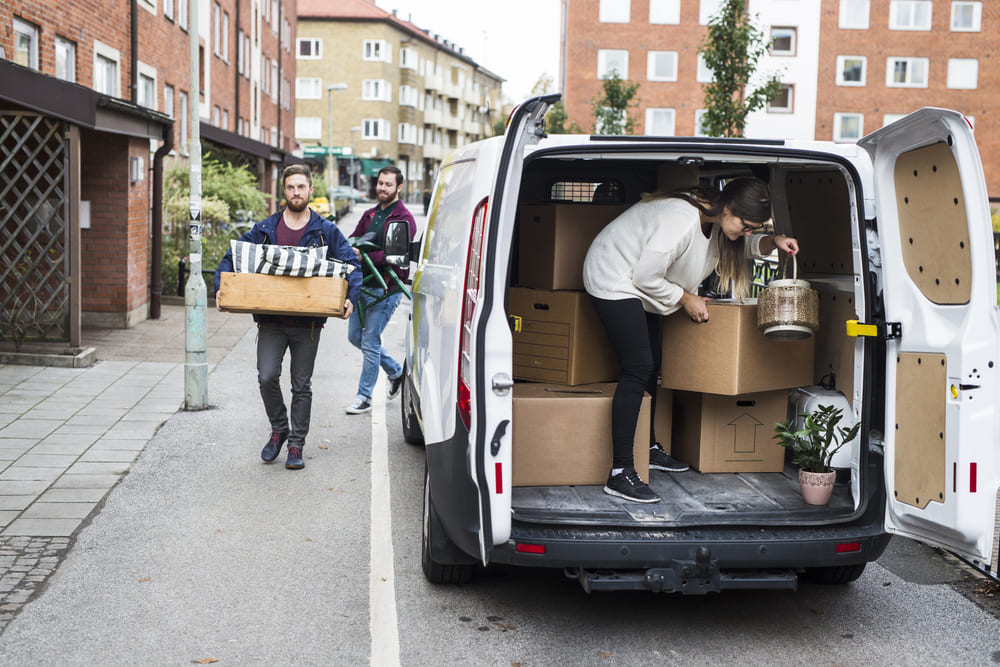International removals

Moving internationally is a major undertaking that requires proper planning and logistics. Whether you are moving for work, study or in search of new life opportunities, the process can be complicated and stressful. In this article, we will outline the key aspects of international removals and tips on how to make the whole process go smoothly and without unnecessary complications.
Planning an international move
Planning is the key to success. The earlier the preparations start, the less stress and the more control you have over the move.
1.1. Choice of removal date
It is best to plan your move 3-6 months in advance. This will allow you to find the right removal company, collect the necessary documents and organise transport. It’s also worth paying attention to moving seasons – demand is highest in summer, which can affect prices and company availability. If you plan a move in the off-season, you can expect lower costs and more flexibility in delivery times. If the move is to a far-flung destination, it is worth checking what the weather conditions are like in the destination country on the planned date. Weather conditions can affect the timeliness of transport and the safety of the items being transported.
1.2. Budget and removal costs
Moving abroad involves costs that can be significantly higher than for a domestic move. It is worth factoring into your budget:
- the cost of transporting the property (by land, sea or air),
- customs duties and taxes,
- property insurance,
- the cost of renting a flat or hotel for the duration of the move,
- the cost of storing things,
- document translation,
- additional adaptation costs (e.g. language courses, car rental, purchase of new household appliances/RTVs),
- costs associated with transporting pets if you plan to take your pet.
It is a good idea to prepare a detailed estimate to avoid unforeseen expenses and to keep your finances under control at every stage of the move. Moving to countries outside the European Union often involves additional formalities and customs fees.
1.3 List of items to take with you
Not everything is worth transporting. Expensive or hard-to-replace items should be on the priority list. Everyday items can be purchased upon arrival in the new country. It is also worth considering selling or donating unnecessary items before you leave, which will reduce the amount of possessions transported and cut costs. For international moves, it is also important to properly secure documents, jewellery and electronic equipment. It is best to transport documents in person and protect equipment with special protective materials.
2. Selection of the removal company
A professional removal company can make the whole process much simpler. But how do you choose the right company?
2.1 What should guide the choice of company?
- Experience and specialisation – the company should have experience in international removals,
- reviews and recommendations – it is worth checking reviews and feedback from other customers,
- scope of services – the company should offer a comprehensive service, including packing, transport, customs clearance and unpacking at the destination,
- insurance – securing property against damage or loss,
- fleet and equipment – modern means of transport and appropriate equipment for securing property.
It is also worth asking whether the company offers real-time tracking and additional services, such as storage of belongings in warehouses.
3. Formalities and documentation during the move
Any move abroad involves formalities that need to be fulfilled.
3.1 Visas and residence permits
Depending on the destination country, you may need to obtain the appropriate visa or residence permit. It is advisable to familiarise yourself with the consular requirements of the country in question and start the application process a few months before you plan to move. Some countries offer expat programmes that facilitate the process of legalising your stay and allow you to start working or studying more quickly.
In addition, it is a good idea to find out what vaccinations are required in a particular country, especially if the move involves tropical regions or countries with different climates.
Planning an international move
International removals is a complex process requiring careful planning, knowledge of formalities and good organisation. Choosing the right company, properly preparing documents and efficiently packing belongings are key elements that determine the success of the whole endeavour. With the right approach, moving abroad can become less stressful and more efficient. Every move is a new challenge, but also an opportunity for growth and new experiences. Good preparation and flexibility will help you adapt quickly and enjoy new opportunities and surroundings.
